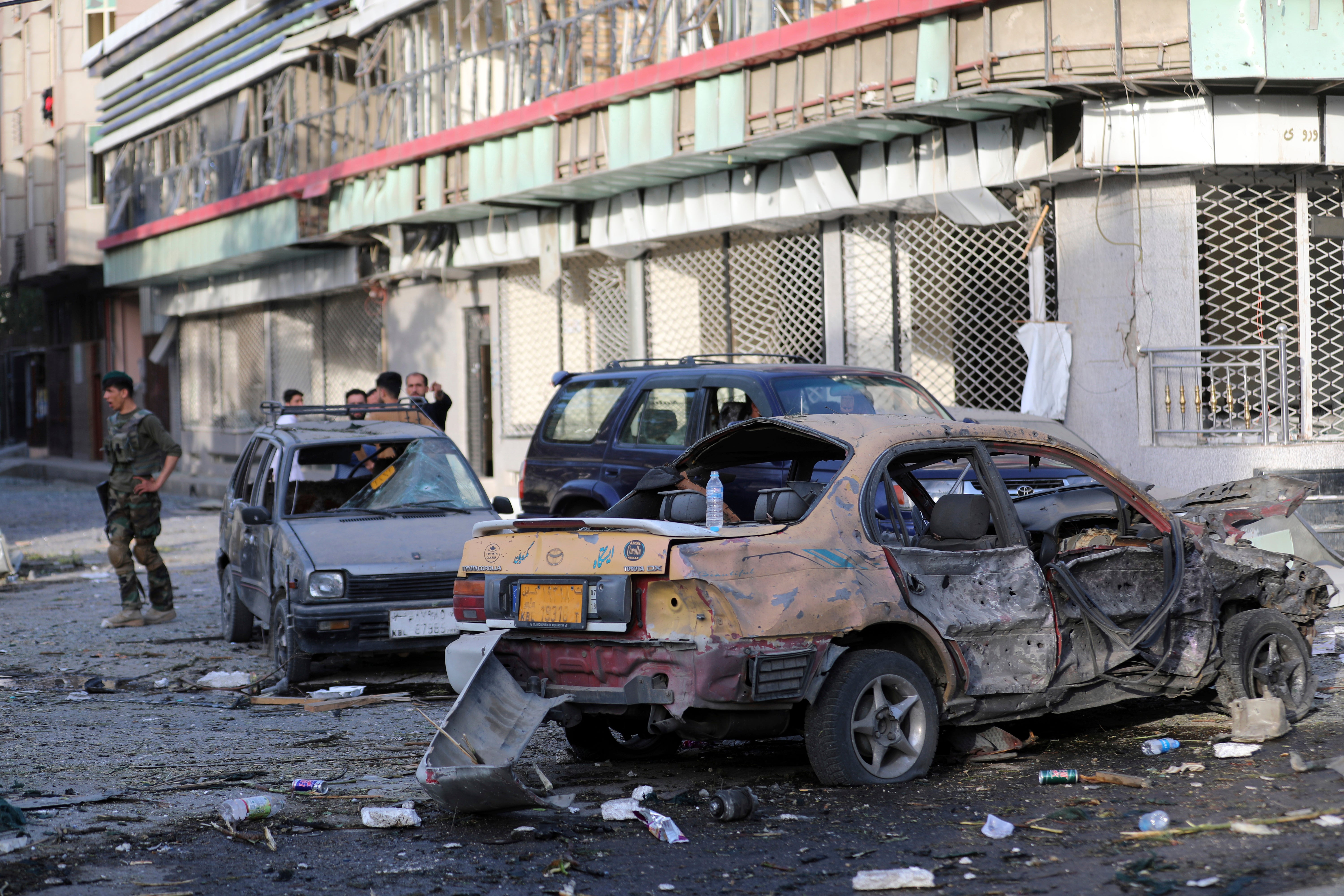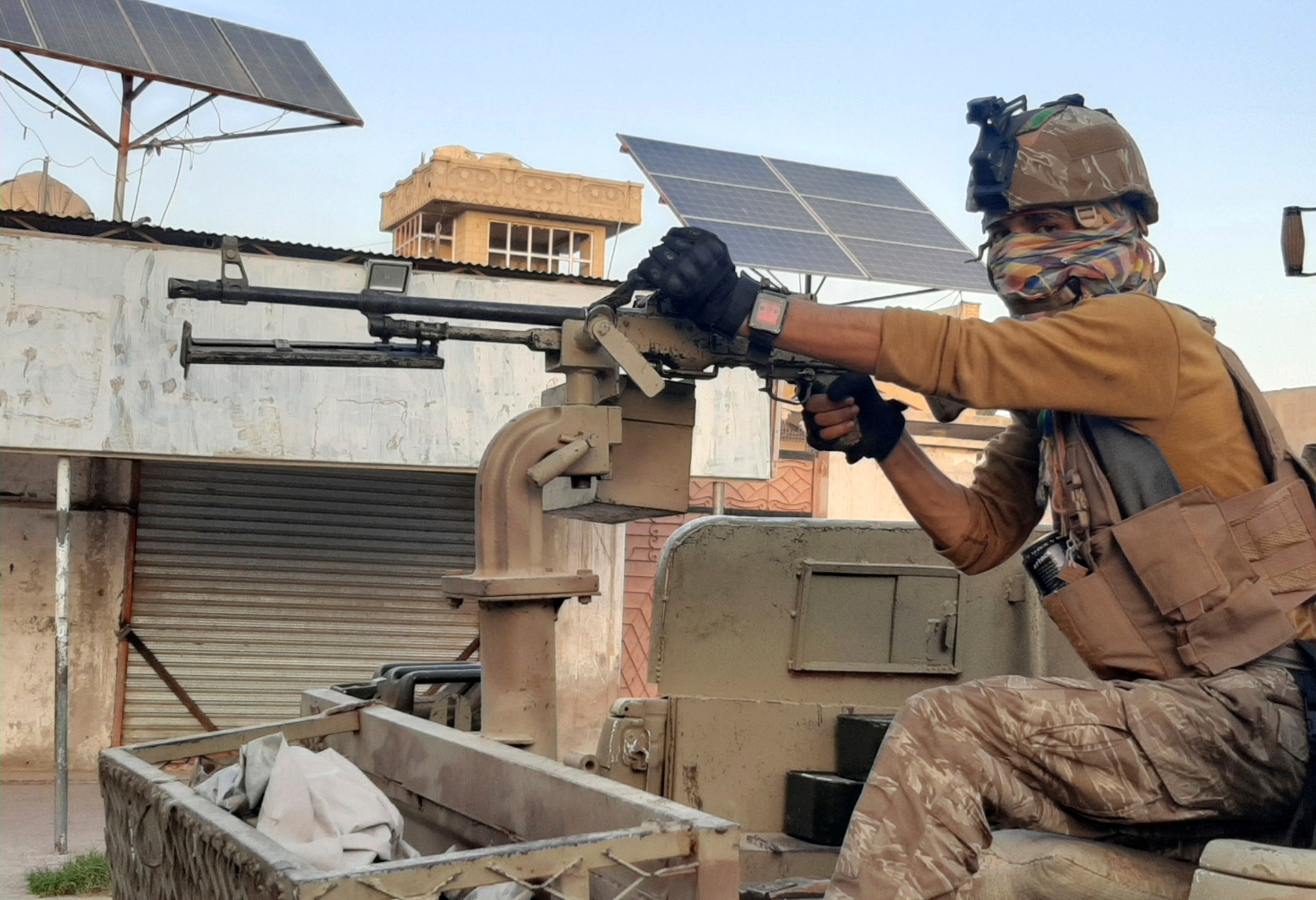A new civil war in Afghanistan risks spreading disorder around the world
Foreign intervention in the nation has fanned the flames of a crisis that could now be harder to contain, writes Mary Dejevsky


The news from Afghanistan becomes grimmer with each passing day. Since Joe Biden announced the US withdrawal in April and declared the effective end of the 20-year mission last month, Taliban forces have advanced on key border posts and cities. It is not at all clear how able or willing the largely western-trained Afghan army is to hold its ground. Its early performance has not been promising.
Those with experience are forecasting more bloodshed before anything gets better – if it even does. David Petraeus, appointed commander of international forces in Afghanistan by Obama, has warned that the country is disintegrating and that the US has abandoned the Afghans to faced “a brutal, bloody civil war”.
One-time UK development secretary, Rory Stewart, who walked across Afghanistan in 2002, foresees a return to the warlordism of the 1990s, with some of the same ruthless individuals in charge.
The head of the UK armed forces, Gen Sir Nick Carter, while more circumspect, has also been unusually outspoken for a serving officer, saying that descent into civil war cannot be ruled out while insisting that it is also too early to succumb to pessimism.
If the omens are not good, to put it mildly, it has also to be noted that Biden’s decision – one of the first of his presidency – to bring US troops home from Afghanistan by the emblematic date of 9/11 put a lot of noses out of joint.
Not only did it surprise many because it broke with US policy when he was vice president, but it associated him with one of the key decisions made by Donald Trump. The only difference between them was the withdrawal date: Trump had set 1 May this year; Biden set September but ensured, as a prudent leader should, that the majority of troops would quietly leave – as they have done – long before.
It may not then be chance that some of the most eloquent prophets of doom are among those who opposed the withdrawal. Petraeus, for instance, convinced an uncertain Obama to leave US troops in Afghanistan, much against his better judgement. And although the former commander left office under a cloud, he loses no opportunity to defend either his military record or the nation-building school of US foreign policy.
The powers-that-be in the UK were hardly delighted by Biden’s decision either. Not only does it appear that they had little advance warning before the announcement, but they had no choice but to follow, exposing just how little autonomy the UK enjoys when it comes to military matters. As they scrambled to withdraw the remaining UK forces, officials lamented that just another few months of training would have left the Afghan army in better shape. Believe that, as you may.

The dissenters also include many of those with direct experience of Afghanistan: the soldiers who fought and could now reasonably feel that their sacrifice was in vain; the aid workers whose projects are now threatened, and the journalists who feel a duty to those who helped them. The sense is of a good mission prematurely abandoned and obligations grievously betrayed.
My heart, I regret to say, is a little harder. If any conclusions can be drawn from the past 20 years of western military interventions, it is surely that other countries must build their own futures; that help, however well-intentioned, is only as durable as the support it enjoys in that country; and that no government that depends on an outside force – call it invading, occupying, interventionist, as you like – is likely to survive its departure. The conflicts that were artificially interrupted are likely to pick up where they left off.
Where they left off was – in this case – in 2001, after 9/11 and with attempts to defeat the Taliban. And, alas, it would seem that, for all the talk of social progress, Afghanistan is little nearer to being stable than it was when the talks on a new constitutional settlement were convened near Bonn in December 2011. The exclusion of the Taliban from those talks can now be seen for the mistake it was, as can the disastrous US-led diversion into Iraq.
The pity is that not only can those mistakes not be undone, but the ramifications of renewed conflict in Afghanistan threatens to spread disorder even wider than it did then.
But the big picture must be of even greater concern. Twenty years ago, Afghanistan’s neighbours looked generally more settled than they do now. Iran and Iraq were still recovering from almost 10 years of war. Iran was still consolidating its Islamic Revolution; Iraq was under the thumb of Saddam Hussein. The former Soviet central Asian republics were still feeling their way to becoming independent and largely fixed in Moscow’s orbit. Vladimir Putin had only just inherited power and his priority was to keep a fractious federation together. China was preoccupied with its economy a decade on from Tiananmen Square. What happened in Afghanistan was most acute in its impact on Pakistan, not least thanks to millions of Afghan refugees. Any threat further afield was limited by poor communications and geographical constraints.
The neighbourhood looks very different now. Russia and China are stronger. So far, any competition between them for power and influence in the central Asian republics has remained below the radar, but this does not mean it could not erupt, and the central Asian republics are freer agents than they once were. Beijing’s repression of the Uighurs in Xinjiang is a sign that it already has an eye on security in its northwest. Iran has gained regional influence thanks to the war in Syria and is now closer to being a nuclear power. Isis is on the lookout for new havens. And whereas Afghan refugees tended to stay in Pakistan or Iran, now many can aspire to reach Europe.
For all these reasons, any new civil war in Afghanistan could present a far greater threat to regional and wider international instability than it did 20 years ago – something the cataclysmic effect of 9/11 has tended to disguise.
But all those blaming Biden and nursing a guilty conscience about the west’s “betrayal” need to raise their sights beyond their Kabul allies. They need to ask whether the protracted foreign presence – that could surely have ended with the capture of Osama bin Laden – has not served to delay a genuine Afghan settlement, and so fanned the flames of a conflict that could now be far harder to contain.






Join our commenting forum
Join thought-provoking conversations, follow other Independent readers and see their replies
Comments